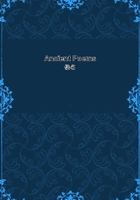
第2章
The editor had passed his earliest years in a romantic mountain-district in the North of England, where old customs and manners, and old songs and ballads still linger. Under the influence of these associations, he imbibed a passionate love for peasant rhymes; having little notion at that time that the simple minstrelsy which afforded him so much delight could yield hardly less pleasure to those who cultivated more artificial modes of poetry, and who knew little of the life of the peasantry. His collection was not issued without diffidence; but the result dissipated all apprehension as to the estimate in which these essentially popular productions are held. The reception of the book, indeed, far exceeded its merits; for he is bound in candour to say that it was neither so complete nor so judiciously selected as it might have been. Like almost all books issued by societies, it was got up in haste, and hurried through the press. It contained some things which were out of place in such a work, but which were inserted upon solicitations that could not have been very easily refused; and even where the matter was unexceptionable, it sometimes happened that it was printed from comparatively modern broadsides, for want of time to consult earlier editions. In the interval which has since elapsed, all these defects and short-comings have been remedied. Several pieces, which had no legitimate claims to the places they occupied, have been removed;others have been collated with more ancient copies than the editor had had access to previously; and the whole work has been considerably enlarged. In its present form it is strictly what its title-page implies - a collection of poems, ballads, and songs preserved by tradition, and in actual circulation, amongst the peasantry.
BEX, CANTON DE VAUD.
SWITZERLAND.
The present volume differs in many important particulars from the former, of the deficiencies of which Mr. Dixon makes so frank an avowal. It has not only undergone a careful revision, but has received additions to an extent which renders it almost a new work.
Many of these accessions are taken from extremely rare originals, and others are here printed for the first time, including amongst the latter the ballad of EARL BRAND, a traditional lyric of great antiquity, long familiar to the dales of the North of England; and the DEATH OF QUEEN JANE, a relic of more than ordinary interest.
Nearly forty songs, noted down from recitation, or gathered from sources not generally accessible, have been added to the former collection, illustrative, for the most part, of historical events, country pastimes, and local customs. Not the least suggestive feature in this department are the political songs it contains, which have long outlived the occasions that gave them birth, and which still retain their popularity, although their allusions are no longer understood. Amongst this class of songs may be specially indicated JACK AND TOM, JOAN'S ALE WAS NEW, GEORGE RIDLER'S OVEN, and THE CARRION CROW. The songs of a strictly rural character, having reference to the occupations and intercourse of the people, possess an interest which cannot be adequately measured by their poetical pretensions. The very defects of art with which they are chargeable, constitute their highest claim to consideration as authentic specimens of country lore. The songs in praise of the dairy, or the plough; or in celebration of the harvest-home, or the churn-supper; or descriptive of the pleasures of the milk-maid, or the courtship in the farm-house; or those that give us glimpses of the ways of life of the waggoner, the poacher, the horse-dealer, and the boon companion of the road-side hostelrie, are no less curious for their idiomatic and primitive forms of expression, than for their pictures of rustic modes and manners. Of special interest, too, are the songs which relate to festival and customs;such as the SWORD DANCER'S SONG AND INTERLUDE, the SWEARING-INSONG, OR RHYME, AT HIGHGATE, the CORNISH MIDSUMMER BONFIRE SONG, and the FAIRLOP FAIR SONG.
In the arrangement of so multifarious an anthology, gathered from nearly all parts of the kingdom, the observance of chronological order, for obvious reasons, has not been attempted; but pieces which possess any kind of affinity to each other have been kept together as nearly as other considerations would permit.
The value of this volume consists in the genuineness of its contents, and the healthiness of its tone. While fashionable life was masquerading in imaginary Arcadias, and deluging theatres and concert rooms with shams, the English peasant remained true to the realities of his own experience, and produced and sang songs which faithfully reflected the actual life around him. Whatever these songs describe is true to that life. There are no fictitious raptures in them. Love here never dresses its emotions in artificial images, nor disguises itself in the mask of a Strephon or a Daphne. It is in this particular aspect that the poetry of the country possesses a permanent and moral interest.
R. B.
ANCIENT POEMS, BALLADS, AND SONGS OF THE PEASANTRY.
Contents Poems:
The plain-dealing man.
The vanities of life.
The life and age of man.
The young man's wish.
The midnight messenger; or, a sudden call from an earthly glory to the cold grave.
A dialogue betwixt an exciseman and death.
The messenger of mortality; or life and death contrasted in a dialogue betwixt death and a lady.
England's alarm; or the pious christian's speedy call to repentance Smoking spiritualized.
The masonic hymn.
God speed the plow, and bless the corn-mow. A dialogue between the husbandman and servingman.
A dialogue between the husbandman and the servingman.
The Catholick.
The three knights.
The blind beggar of Bednall Green.
Ballads:
The bold pedlar and Robin Hood.
The outlandish knight.
Lord Delaware.
Lord Bateman.
The golden glove; or, the squire of tamworth.
King James I. And the tinkler.